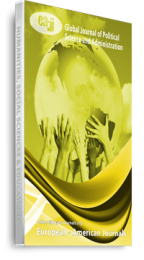The 2008 global financial crisis witnessed the start of decline in the degree of mutual trust between China and the United States. Especially after the Trump administration took office, not only was their trust relationship further seriously damaged, their mutual strategic suspicions of each other have further expanded from security to economic, political, scientific, cultural, educational and other fields. This paper believes that the rapid loss of Sino-US mutual trust in recent years is not only the result of the continuous failure of both sides on realizing their expectations in the interest game, but also reflected the process of their gradual transition from limited benign interaction to vicious interaction. The root cause lies in the establishment of the Sino-US trust pattern dominated by rational-choice based trust and process-based trust. Due to the lack of sufficient affective trust, external institutional guarantee, and internal trust incentive and supervision mechanism, the Sino-US trust relationship become more fragile and contextual and less stable. Meanwhile, the direct cause should be attributed to the formation of mutual strategic hedging between China and the United States in Asia-Pacific after the financial crisis, as well as the transformation of their interaction process under this mechanism.
Keywords: Sino-US relations, inter-state trust, mutual strategic hedging, mutual trust loss, trust pattern

